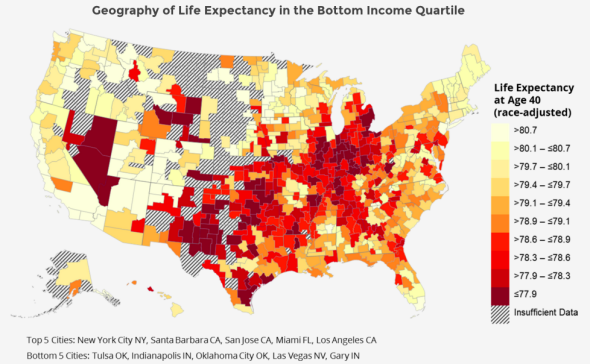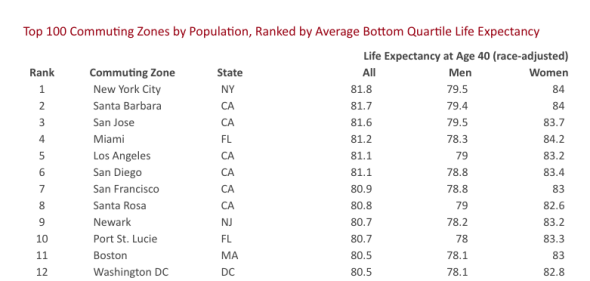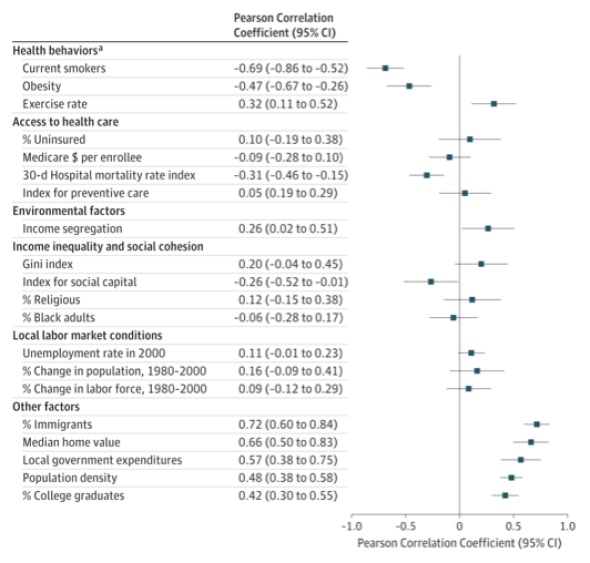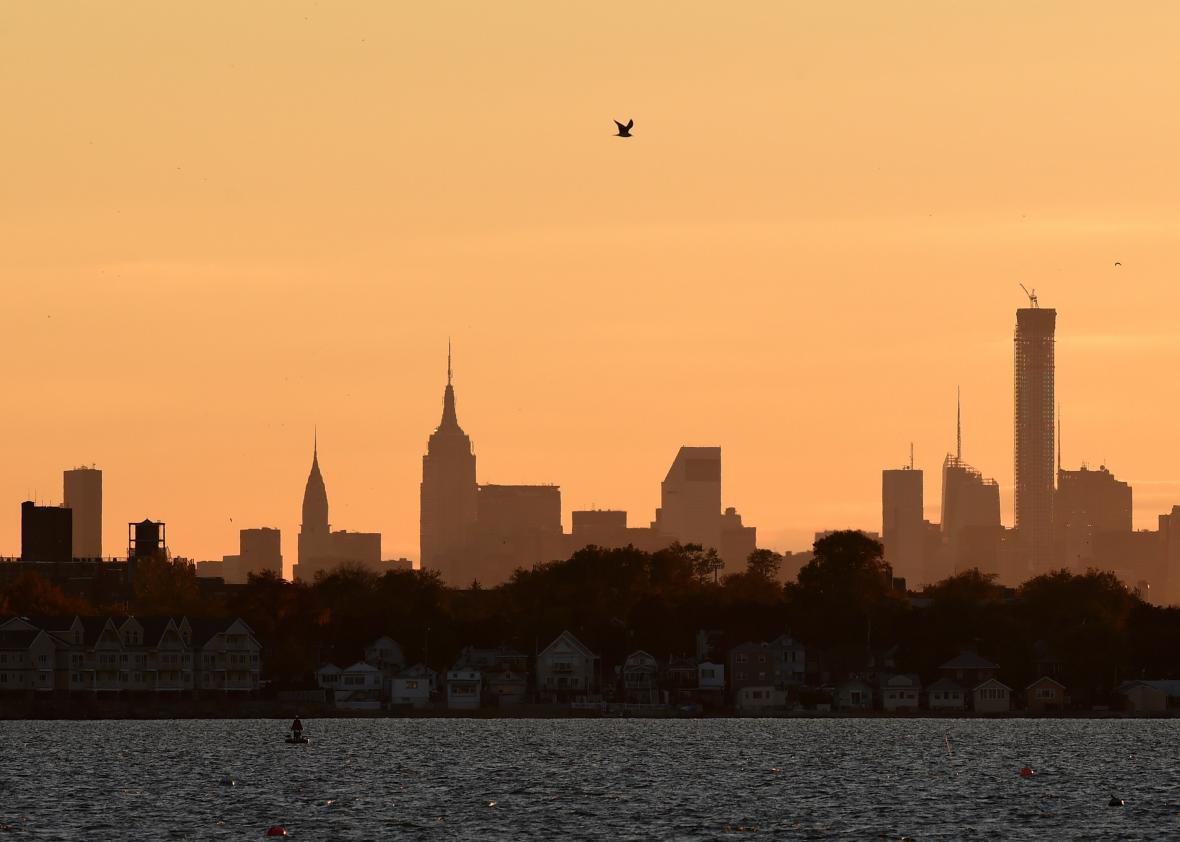If you are a low-income person in the United States, you will probably live a longer life if your home happens to be in a wealthy city that spends heavily on its residents, like New York or San Francisco. If you’re stuck in Tulsa, Oklahoma, well, that’s bad luck.
That’s one of the fascinating takeaways from a groundbreaking new study published in the Journal of the American Medical Association that examines the growing gap in life expectancies between the rich and poor, and how it may be influenced by geography.
The paper’s authors, led by Stanford economist Raj Chetty, used Social Security and tax records from millions of men and women to look at the way lifespans vary with income in different parts of the country. In keeping with past research on the subject, they found that when it comes to longevity, the wealthy are extending their lead on other Americans. Between 2001 and 2014, men and women in the top 5 percent of the earnings distribution added about three years to their lives. Among the bottom 5 percent, by comparison, life expectancies stayed essentially unchanged. Some cities proved to be exceptions. In places like Birmingham, Alabama, and Fayetteville, North Carolina, the lifespan gap actually shrank between high- and low-income groups. But nationwide, the wealthy pulled away.
The most fascinating part of the research, however, isn’t really about the rich-poor divide per se. Instead, it’s this map:

Chetty, et al.
It turns out that the poor survive much longer in some corners of the country than others. Life expectancies for the bottom quarter of earners are longest on the coasts and parts of the West. They’re typically shortest in a regional band that stretches diagonally from the Rust Belt, through parts of the South and down to Texas: America’s death alley.

Chetty, et al.
And the specific cities where the poor have the very longest lives? They tend to fit a certain profile: dense and affluent, with liberal local politics. Among the 100 largest metro areas, Americans in the lowest quarter of earners live the most years in New York City. San Francisco, Boston, and Washington, D.C., aren’t far behind on the list. Toward the bottom of the rankings are places like Tulsa, Oklahoma City; Las Vegas; and Gary, Indiana.
Why are the poor likely to live longer in New York than Gary?
This is where things get especially interesting. In general, researchers struggle surprisingly hard to answer exactly why the poor die younger. You might expect that issues like health-care access would play a role. If you’re too broke to see a doctor, after all, there’s a good chance you’ll get seriously ill. But low-income Americans also tend to lead less healthy lifestyles than the rich—they smoke more, weigh more, and exercise less, all of which cut years off their lives. And figuring out what’s more important—financial resources or lifestyle—can be tricky.
The Chetty paper essentially offers evidence that the poor may live longer in some cities than others because those places help them live healthier lifestyles. Somewhat surprisingly, it finds no statistically significant relationship between the rate of health-insurance coverage and longevity among low-income residents. Ditto for the unemployment rate. However, the poor did tend to live longer in cities with lower smoking and obesity rates, and where people exercised more often. Metro areas with denser populations, with higher home values, where the local government spent more per resident, where there were more college graduates, and where there more immigrants also seemed to be good for the poor.

Chetty, et. al
Chetty and his co-authors don’t claim to be offering any definitive conclusions. Their paper is still very much a conversation starter. But add up their findings and you get the following portrait: Wealthy cities that have money to spend on social services, and are willing to do things like pass smoking bans, may really be helping their poor live healthier (and hopefully happier) lives. This isn’t to say that we can stop worrying about health insurance (that would be silly), or the rich-poor longevity gap is all about tobacco use. But it at least seems indicative that meddling, liberal nanny-staters may have the right idea about prodding their fellow citizens to make better choices for themselves.
